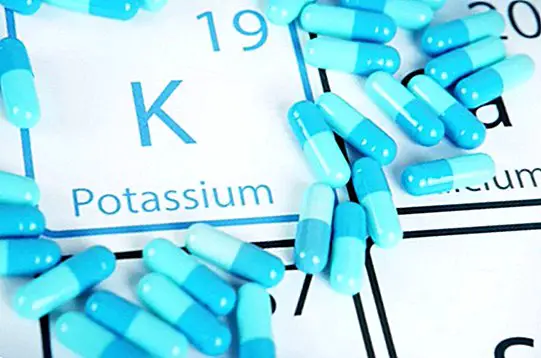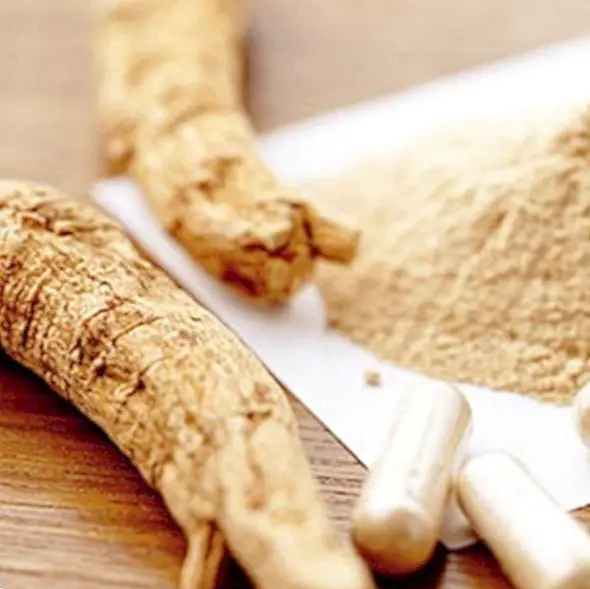High potassium: symptoms, causes, why it goes up and how to lower it
It is true that on many occasions it is more common to know the health consequences of having high levels of transaminases, creatinine, bilirubin or uric acid, precisely because all these parameters are included routinely - and basic - in the blood tests we tend to perform each year.
However, there are also other parameters of nutrients and other compounds in our body whose low or high levels can also cause different health problems.
It is the case of potassium, a mineral essential for the proper functioning of our body, but in those times when it is high can be very dangerous to health.
What is potassium?
It is one of the minerals that appear in the greatest amount in the body, which has always been associated with sodium.
It is more specifically a macro-mineral, which tends to maintain normal pressure both inside and outside the cells, intervenes in the functioning of the nervous system and the locomotor system, reduces the effects of excess sodium, participates in the mechanism of relaxation and contraction of muscles, and regulates water balance, among others.

Why does potassium increase? Its main causes
First of all we must bear in mind that Kidneys are responsible for eliminating excess potassium, and they do it through urine. Therefore, it is common for potassium levels to increase when kidneys they do not work well, so they tend not to be able to eliminate the adequate amount of this important element so that, among other functions, the cells can function properly.
And what are the conditions, habits or diseases that can influence this accumulation of potassium in blood ?:
- Burns:Especially when they are located on large areas of the body.
- Some drugs:Especially certain medications used to reduce high blood pressure, especially angiotensin receptor blockers and angiotensin-converting enzyme inhibitors.
- Addison's disease:It is a disease in which the adrenal glands are not able to produce enough hormones.
- Hemolytic anemia:It is a condition in which red blood cells are destroyed earlier than normal.
- Bleeding:Especially if that bleeding is intense, especially in the stomach and intestines.
Symptoms of elevated potassium
Did you know that, in reality, high potassium levels tend not to cause symptoms in most cases? However, if they do appear, the most common tend to be the following:
- Sickness.
- Headache.
- Weak or irregular pulse.
- Fainting.
Consequences of high potassium
When potassium is high, the hyperkalemia or hyperkalemia, which has its origin in an imbalance of this mineral caused by the inability of our kidneys to eliminate excess salts in the blood, or as a consequence of the increase in the intake of potassium through the diet.
Although it is a fundamental mineral for our organism, the truth is that levels of high potassium They can affect our cardiac system, since an excess of potassium can increase the risk not only of hypertension, but of causing cardiac arrhythmias.
This means that it increases the possibility that the person suffers cerebrovascular accidents or a myocardial infarction.

How to reduce high potassium?
At the time of lower high potassium, it is essential to go to our doctor to tell us what foods and food groups we should avoid in our diet, until potassium levels stabilize.
Foods to avoid with high potassium
- Vegetables and vegetables: celery, pumpkin, zucchini, thistles, eggplant, broccoli, cauliflower and beetroot.
- Fruits: bananas, bananas, apricot, plum, cherry, avocado, peach and grapes.
- Legumes: green beans.
- Seeds and cereals: wheat and soybean germ.
- Nuts: nuts.
How to avoid high potassium levels?
It is essential to follow a diet as varied and balanced as possible, without ever exceeding the consumption of any food or food groups. In addition, increasing fluid intake is essential for good kidney function.
If high levels of potassium are due to the diet, purifying the kidneys will help when stimulating them to favor the elimination of mineral salts. This article is published for informational purposes only. It can not and should not replace the consultation with a Physician. We advise you to consult your Trusted Doctor.


